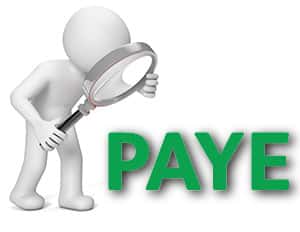Small Business Taxes in Nigeria
Small Business Taxes in Nigeria
When starting a business, one of the things that most small businesses in Nigeria do not really think about is paying taxes.
While some may seem to be unaware of taxes, many voluntarily omit the payment of taxes in their operations and budgets.
WHAT IS TAXATION? Taxation is the practice of collecting taxes (money) from citizens based on their earnings and
property. It is when a Government imposes a financial obligation or levies on its citizens or residents. However, studies
show that close to 80 per cent of small and micro businesses in Nigeria shy away from paying taxes, a situation the government
has over the years tried to rectify. While business owners often struggle to understand why they should contribute to an
administration which appears to throw frequent obstacles in their way, taxation is a certainty with penalties that hurt businesses
when they are caught evading tax.
Business taxation is essentially the tax businesses pay to the government as part of their obligations. It is important that every
business pay taxes, whether it falls under Sole Proprietorship, Partnership, Limited Liability or a Corporation. Your business is
responsible for abiding by the tax regulations as provided by the country.
In Nigeria, all persons in employment, individuals in business, non-residents who derive income from Nigeria, and companies
that operate in Nigeria are mandated to pay tax. The tax regime in Nigeria is administered by the three tiers of government –
Federal, State and Local government taxes. Federal Government Taxes include- Companies Income Tax
(CIT), Value Added Tax (VAT), Capital Gain Tax, Stamp Duty Tax, Education Tax, and Petroleum Profit Tax amongst others.
State Government Taxes include:- Personal Income Tax, Business Premises Tax, Development levy.
Local Government Taxes include:- levies and rates. Businesses, whether small or micro have to figure out which
taxes is applicable to the business that they are involved so as to enable them calculate the correct taxes to pay.
Each tax comes with its percentages thus, how much a business makes a year can also determine how much to remit to the
government. Also with the new Finance act which excludes some micro businesses from some taxes, you need to know the taxes to
pay, how much, and the penalties when the taxes aren’t paid on time.
Why does my business have to pay tax?









